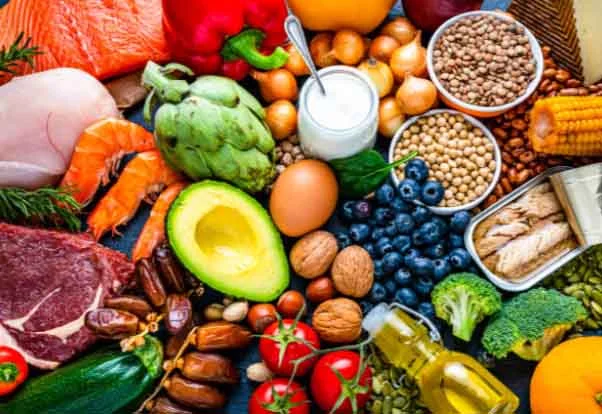The 10 Most Essential Nutrients for a Healthy Diet
When it comes to maintaining a healthy and balanced diet, ensuring that you’re getting all the essential nutrients is crucial. From vitamins to minerals, these nutrients play a significant role in supporting various bodily functions and promoting overall well-being. In this blog post, we’ll explore the ten most essential nutrients your body needs and how you can incorporate them into your daily diet.
1. Protein
Protein is often referred to as the building block of life. It is vital for the growth and repair of body tissues, including muscles, skin, and organs. Including sources of protein in your diet, such as lean meats, poultry, fish, legumes, and dairy products, can help you maintain a healthy body composition and support various vital functions.
2. Fiber
Fiber is a type of carbohydrate that the body cannot digest. Despite this, it plays a crucial role in maintaining digestive health and preventing chronic diseases. Foods rich in fiber, such as whole grains, fruits, vegetables, and legumes, help promote regular bowel movements, control blood sugar levels, and support heart health.
3. Omega-3 Fatty Acids
Omega-3 fatty acids are a type of polyunsaturated fat that provide numerous health benefits. They are known for their anti-inflammatory properties, promoting heart health, and supporting brain function. Incorporate sources of omega-3 fatty acids like fatty fish (salmon, mackerel), walnuts, flaxseeds, and chia seeds in your diet for optimal health.
4. Calcium
Calcium is a mineral that plays a crucial role in maintaining strong bones and teeth. It is also involved in muscle function, nerve transmission, and hormone secretion. Incorporating calcium-rich foods such as dairy products, leafy green vegetables, tofu, and fortified plant-based milks can help ensure you meet your daily calcium needs.
5. Vitamin D
Vitamin D, also known as the sunshine vitamin, is essential for the absorption of calcium and the maintenance of strong and healthy bones. While we can get vitamin D from limited food sources like fatty fish and fortified dairy products, our primary source is sunlight. However, it may be necessary for some individuals to take supplements, especially during winter months or for those with limited sun exposure.
6. Iron
Iron is essential for the production of hemoglobin, a protein found in red blood cells that carries oxygen throughout the body. Insufficient iron intake can lead to iron deficiency anemia, resulting in fatigue, weakness, and decreased immunity. Incorporate iron-rich foods like red meat, poultry, fish, fortified cereals, and legumes into your diet to prevent iron deficiency.
7. Vitamins A, C, and E
These three vitamins are powerful antioxidants that protect our bodies against harmful free radicals. Vitamin A supports vision health, immune function, and cell growth. Vitamin C promotes a healthy immune system and collagen production, while vitamin E helps protect cells from damage. Citrus fruits, berries, leafy greens, and nuts are excellent sources of these vitamins.
8. Magnesium
Magnesium is involved in hundreds of biochemical reactions in the body, including energy production, muscle function, and nerve transmission. It also supports heart health and regulates blood sugar levels. Including magnesium-rich foods like leafy greens, nuts, seeds, whole grains, and legumes can help you meet your daily requirement.
9. B Vitamins
The B vitamins, including B1 (thiamin), B2 (riboflavin), B3 (niacin), B5 (pantothenic acid), B6 (pyridoxine), B7 (biotin), B9 (folate), and B12 (cobalamin), play a crucial role in energy production, DNA synthesis, and nerve function. Sources of B vitamins include whole grains, legumes, dairy products, eggs, and leafy greens.
10. Potassium
Potassium is an essential mineral that helps maintain proper heart and muscle function, regulates blood pressure, and supports fluid balance in the body. Bananas, leafy greens, avocados, and potatoes with the skin are excellent sources of potassium.
In conclusion, maintaining a healthy diet involves incorporating these ten essential nutrients. By diversifying your food choices and including a wide range of nutrient-rich foods, you can ensure that your body receives the necessary vitamins, minerals, and antioxidants for optimal health. Remember to consult with a healthcare professional or registered dietitian to personalize your nutritional needs based on age, sex, and any underlying health conditions. Eat well, stay healthy!

